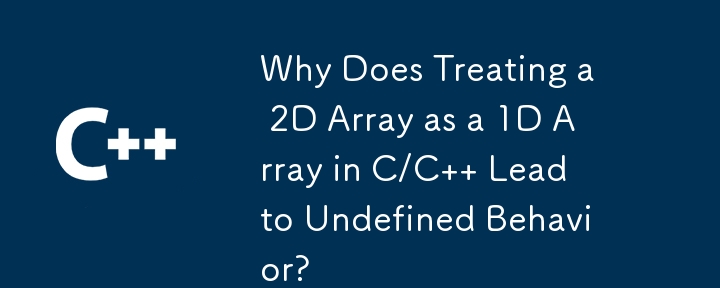

Treating a 2D Array as a 1D Array: Undefined Behavior
In C and C , multidimensional arrays are stored contiguously in memory. However, accessing a multidimensional array using single-dimensional indexing can lead to undefined behavior.
Consider the following code:
int a[25][80]; a[0][1234] = 56; // Line 2 int* p = &a[0][0]; p[1234] = 56; // Line 4
Line 2:
This line attempts to access an element that is outside the bounds of the array a[25][80]. The first dimension of a has a size of 25, but line 2 tries to access the 1235th element, which is beyond the valid range. This results in undefined behavior because it violates the language definition.
Line 4:
This line also triggers undefined behavior. The array a has 25 * 80 = 2000 elements, while p points to the start of the array. The expression p[1234] therefore tries to access the 1235th element of the array, which is outside the valid range. Subscripting an array using a pointer that exceeds its bounds is considered undefined behavior.
Constant Expressions:
The undefined behavior in the above code also manifests in constant expressions. The following code will not compile due to undefined behavior:
constexpr int f(const int (&a)[2][3])
{
auto p = &a[0][0];
return p[3]; // Undefined behavior
}
int main()
{
constexpr int a[2][3] = { 1, 2, 3, 4, 5, 6, };
constexpr int i = f(a);
}This demonstrates that undefined behavior in constant expressions is still illegal, and compilers will reject such code.
The above is the detailed content of Why Does Treating a 2D Array as a 1D Array in C/C Lead to Undefined Behavior?. For more information, please follow other related articles on the PHP Chinese website!




